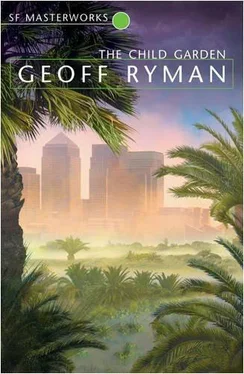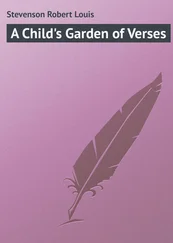‘I take it the reading of music presents you with no difficulties,’ said Rolfa, meaning that most other things did. It was plain now that Rolfa was the older of the two, plain that she was controlling. I always thought you were a shuffling innocent, thought the Milena who remembered. But you knew so much, Rolfa. You were a genius after all.
Genius is in the shapes your hands make as they move, in every reaching or withholding gesture. You know what you are, and you know that ego is the enemy of what you are, so you defend yourself against it, against pride and ambition, and you are very gently guiding me, and you so very gently want me. You knew who I was, Rolfa, and you knew that you could make my body bloom, and my soul. I still want you, Rolfa. I want your hand on me, on the flower between my legs. Desire is like a blister that needs to be burst. And cunning, you were cunning to sing, knowing that it was the music that would hold me, hold us both. You sang, to show me what you already knew. That music in you had found its elect.
So the ghost began to sing again, out of the past.
Ewig … ewig… ewig…
Promises of forever, with silence in between them.
Suddenly Jacob’s face was smiling at her, eyes weary. ‘I have a message for you, Milena.’
I am Constable Dull, an’t shall please you. No, no, no, no, howled the director.
‘From Ms Patel,’ said Jacob.
‘Want some mitts?’ asked Zoe, not at all unkindly, in the dining-room of the Family. Zoe passed Milena the fingerless indigent gloves of kindness. No, not mitts. Palcaky.
Milena and Rolfa ate again in the riverside park. They walked together to the Buddhist shrine and watched the acrobats. They rode on the back of a dustcart from the night market, listening to the sound of the horses’ hooves.
‘But now,’ said Jacob, ‘because of you and Rolfa, when I dream, I also hear the music’
And Jacob and Milena walked together again out into the sun, regretting Rolfa. The whole river regretted Rolfa, now, and the sky, and the birds. Jacob gave Milena’s hand one last squeeze. This time the crucifix was passed between them. ‘I must run my messages, now,’ he said, and turned away, and Milena saw again the sun reflected in the windows, the fire in each of the rooms. Jacob walked into the fire and was consumed. He made the light burn brighter.
‘Fire!’ Cilia was shouting. ‘Fire!’ A bell was ringing and Milena was outside in the cold again, in the dark.
Each room has one of us in it.
Cilia opened the box and inside was paper, being passed again, like human skin.
‘Oh Cill,’ asked Milena, ‘who did this?’
‘Just us Vampires,’ said Cilia. ‘Just us Vampires of History.’ Her face in the moonlight, in the past, was blue.
A trumpet blast sounded. The fire was over. A trumpet blast sounded. The Comedy started again, and the sky was full of fire: it was the Inferno. The souls roiled within it. The souls had been imagined like dandelion fluff, rolling on invisible wires, toiling through the fire, caught in their own sins and imbalances forever, in a universe made of thought. What made the fire, then?
‘You like dogs?’ a man in a body warmer asked. He was on fire too, a fever. Rolfa turned in rage, drunken, demented with what had been denied to her. Rolfa lifted up a table.
It wasn’t the sweaty man she was going to hit with it, realised Milena.
She was going to hit me.
And it seemed to the Milena who remembered that she could see across the river to a park and a little boy in a cowboy hat ran round and round it, singing, ‘Pi-per! Pi-per!’
And the dog cried out, ‘Don’t go! Don’t go!’
I have to. A little while, you shall not see me.
All the Earth seemed to fall away. Milena saw the fields and the village of England in neat patterns, the grain, the pinioned pear trees, and the beehive houses. She wafted up through cloud, into mist, and up into Antarctica, and there, in the light of heaven, in the icy chill, there was life. There, the spiders danced, between crystals of ice. I know where I am, thought Milena, remembering.
Then the window of the Bulge blinked, and suddenly, strung between the clouds were Bees. They had grown great purple wings, veined like leaves, and they hung like bats. There were veins in the sky, clear tubes, full of sluggishly pumping fluids. There were bobbing plants rising up in seaweed tangles, attached to pumpkins full of gas. There were great swirls of Bees, throwing themselves between the plants, rising up on spirals of air like Dore’s Angels, living on light and moisture. They attached themselves to the veins that bridged the clouds.
When was this? Then Milena remembering remembered.
Rolfa threw her head back and howled with joy.
It doesn’t just go back. It goes forward as well, Rolfa said in wonder.
This is the future, thought Milena. I am seeing the future.
Past and future swirled together, in a vision. Milena was swept higher. The sky overhead went dark and the sea far below was like burnished brass. The Earth and the clouds exchanged light. All of it, the Earth, the clouds, the light, the many Milenas, the future and the past, the net of Bees, the net of nerves, all held in a system of reciprocity.
I am. I am outside. I am, outside of time. Outside of time, I have always been weightless.
Afternoon sunlight poured in through the windows. Rolfa’s breasts, shaved, spread almost flat on her chest. Milena was kissing the prickly belly, filling the belly button with her tongue. Then memory took her down further, to where Rolfa had not shaved, to where womanhood lay in folds, and Milena kissed that, slipped her tongue into it, and whipped her own small body around, so that Rolfa could kiss her. It was not harbour or refuge that Milena sought, but the body that was one with the person.
There was a hiss. The two Bulges parted, the seal broken, and the smaller Bulge fell away from the larger. It was returning to Earth. Milena the director saw Christian Soldier, outlined in pure white light falling away from her. It doesn’t matter, don’t regret, she told herself. You’ll be back, you’ll be back here for the Comedy.
Zamavej no rozloucenou, Milena!
Wave goodbye, Milena. It was the last thing she could remember her mother saying.
I’m going home, thought Milena the director.
And then it was the night, in the little room, the Shell. ‘I’m going to sing,’ warned Rolfa, feverish on the bed. Milena fumbled in panic for a pencil to write the music down. Why write it, Milena? No one ever forgets anything. They only try to escape it. You will know this music for the rest of your life, note for note.
Rolfa began to sing the music that ends Purgatory, that will end all that will be performed of the Comedy. She sang it for Milena, looking all the while at her, the music that was like Handel, like Mozart, like Wagner, notes rescued from the core of the soul that belongs to no one, pulled out of the realm of freedom, the realm in which we all ought to live.
‘Give it a rest!’ someone shouted from an upper floor.
Rolfa smiled, and raised her voice. You’ll remember this, too, the smile said.
‘Qu-iet!’ howled someone else.
Milena went to the window to yell at all of them, all of the people who had blocked the music in Rolfa and in themselves and in her.
‘Someone’s dying!’ Milena wailed. For her, it was true.
Rolfa held up her hands and through some miracle of air and spittle reproduced the sound of applause, the sound of justice. And suddenly they were both in Rolfa’s street, at night, by a park, and the trees were applauding too with their leaves. Milena was wearing the indigent gloves. Rolfa, covered in fur again, hugged her and held her. For some reason, it was snowing. Snow fell like stars. When did it snow?
Читать дальше












